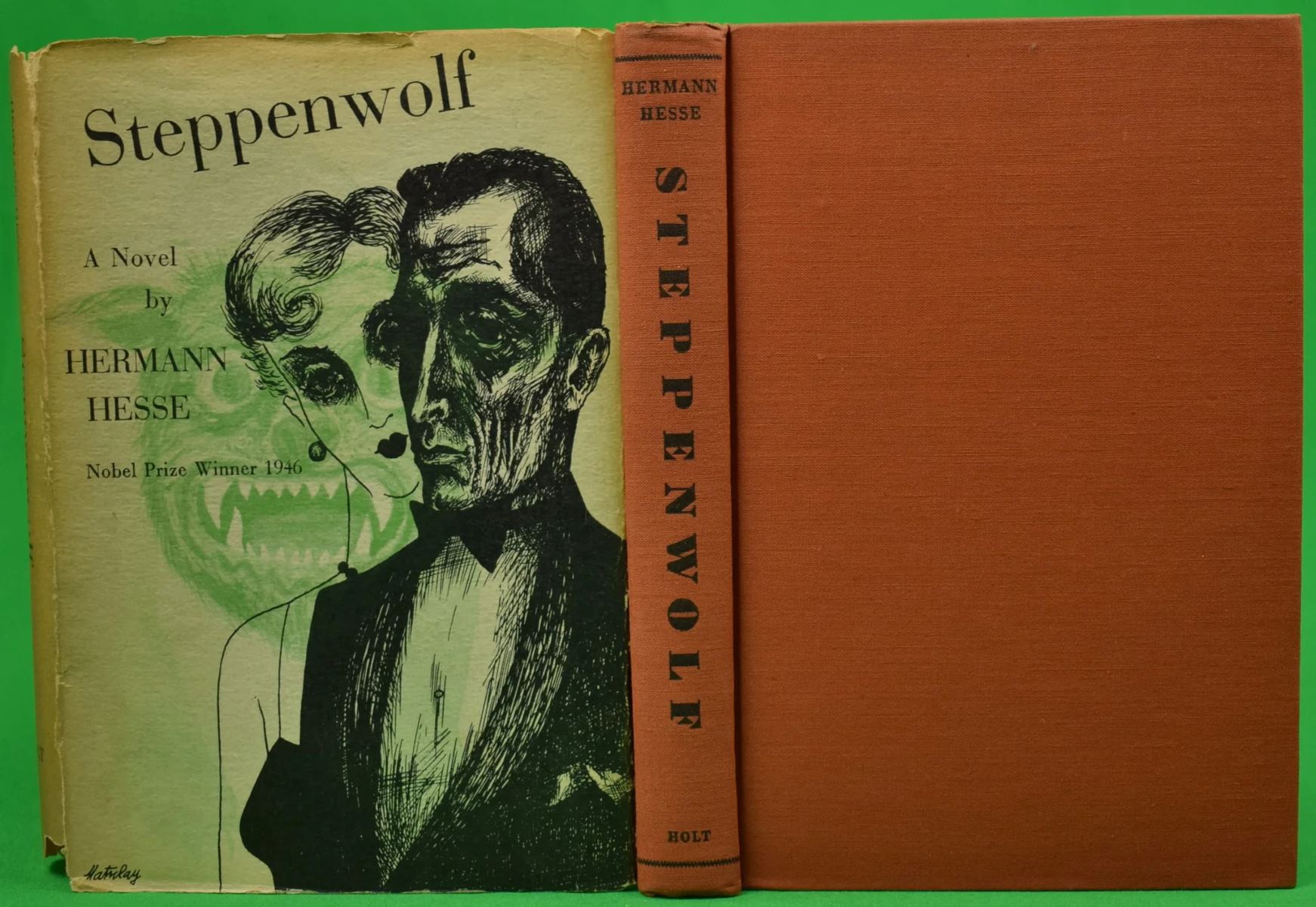
Hermann Hesse, a renowned German-Swiss author, is widely celebrated for his literary masterpiece “Steppenwolf.” Published in 1927, this novel delves into the complex depths of the human psyche, exploring themes of identity, isolation, and the search for meaning in a modern world. Hesse’s work has captivated readers and critics alike, with its profound insights and introspective exploration of the human condition.
In this article, we will delve into 18 extraordinary facts about “Steppenwolf” and its enigmatic author, Hermann Hesse. These facts will shed light on the inspirations behind the novel, the significance of its characters, and the impact it has had on literature and popular culture. So, grab a cup of coffee, settle into a comfortable chair, and prepare to embark on a journey through the intriguing world of “Steppenwolf.
Key Takeaways:
- Steppenwolf by Hermann Hesse delves into the complexities of human nature, inviting readers to ponder the eternal struggle between our animal instincts and civilized persona.
- Through its timeless themes and thought-provoking narrative, Steppenwolf offers readers a transformative journey of self-discovery and introspection, leaving a lasting impact on those who embark on this literary adventure.
Steppenwolf is a novel written by Hermann Hesse.
Steppenwolf is a captivating novel penned by the renowned German author, Hermann Hesse. Published in 1927, it explores the existential crisis and internal struggles of the protagonist, Harry Haller.
The novel explores the theme of duality.
One of the central themes in Steppenwolf is the concept of duality, as Harry Haller battles with his two conflicting selves – the wolf and the man. Hesse masterfully delves into the complexities of human nature and the eternal struggle between our animal instincts and civilized persona.
Steppenwolf delves into existentialism.
Hermann Hesse delves deep into existentialist philosophy in Steppenwolf. The novel raises profound questions about the meaning of life, identity, and the search for self-discovery. It challenges societal norms and encourages readers to reflect on their own existence.
The novel explores the concept of the “Magic Theater”.
In Steppenwolf, Hesse introduces the fascinating concept of the “Magic Theater,” a whimsical place where Harry Haller embarks on a surreal journey of self-exploration. It symbolizes the limitless possibilities of the human mind and the power of imagination.
Steppenwolf is considered a classic of 20th-century literature.
Hesse’s Steppenwolf has garnered critical acclaim and is widely regarded as one of the greatest works of literature from the 20th century. Its introspective narrative and thought-provoking themes continue to resonate with readers around the world.
The novel has been translated into numerous languages.
Steppenwolf has been translated into dozens of languages, allowing readers from diverse cultures to experience the profound insights and philosophical musings present in the text.
Steppenwolf explores the concept of alienation.
Through the character of Harry Haller, Hesse explores the theme of alienation, highlighting the loneliness and detachment that many individuals experience in modern society. The novel serves as a poignant reflection on the human condition.
Steppenwolf has inspired various adaptations.
The profound impact of Steppenwolf can be seen in its numerous adaptations in various art forms. It has been adapted into plays, films, and even music, demonstrating its enduring influence on the creative world.
The novel contains multiple layers of symbolism.
Hesse employs rich symbolism throughout Steppenwolf, imbuing the narrative with deeper meaning. From the magical world of the Magic Theater to the symbolic portrayal of the wolf within, the novel invites readers to unravel its intricate layers of symbolism.
Steppenwolf reflects the author’s own struggles.
Herman Hesse drew inspiration from his own personal struggles and experiences in writing Steppenwolf. The novel can be seen as a reflection of his own journey towards self-discovery and the quest for meaning in life.
Steppenwolf explores the tensions between art and society.
Hesse delves into the tensions between art and society in Steppenwolf, questioning the role of the artist in a conformist world. The novel explores the conflict between creativity and societal expectations, offering profound insights into the artist’s struggle for self-expression.
Steppenwolf delves into the concept of the divided self.
The theme of the divided self is central to Steppenwolf, as Harry Haller grapples with conflicting aspects of his own personality. This exploration of the fragmented self resonates with readers, as it reflects the internal struggles many individuals face in their own lives.
Steppenwolf explores the allure of the counterculture.
Set against the backdrop of the early 20th century, Steppenwolf delves into the allure of the counterculture. It examines the desire for liberation from societal constraints and the search for alternative forms of existence.
Steppenwolf delves into the concept of madness.
The novel delves into the concept of madness and the thin line between sanity and insanity. Through Harry Haller’s journey, Hesse invites readers to contemplate the nature of madness and the societal definitions that surround it.
Steppenwolf challenges traditional notions of identity.
Hesse challenges traditional notions of identity in Steppenwolf, as the protagonist grapples with his own fluid sense of self. The novel questions the fixed nature of identity and invites readers to examine their own notions of who they are.
Steppenwolf has been praised for its philosophical depth.
Philosophical depth is a hallmark of Steppenwolf, with Hesse’s intricate exploration of existentialist themes receiving praise from readers and critics alike. The novel provokes introspection and encourages individuals to question the complexities of life.
Steppenwolf has remained relevant over time.
Despite being written over nine decades ago, Steppenwolf’s timeless themes and thought-provoking narrative continue to resonate with readers today. Its exploration of the human psyche and the search for meaning transcends time and remains relevant in the contemporary world.
Steppenwolf invites readers on a transformative journey.
Steppenwolf offers readers a transformative journey, as they accompany Harry Haller on his quest for self-discovery. The novel’s profound insights and captivating narrative have the power to inspire and leave a lasting impact on those who embark on this literary adventure.
Conclusion
In conclusion, Steppenwolf by Hermann Hesse is undoubtedly an extraordinary novel that delves into the depths of human nature and explores the complexities of the human mind. Through its thought-provoking themes, unique narrative style, and richly developed characters, it captivates readers and leaves a lasting impact.The novel’s exploration of the duality of human existence, the struggle between the wild instinctual self and the civilized social self, resonates deeply with readers. Hesse’s vivid and poetic writing style masterfully captures the essence of this internal conflict, drawing readers further into the story.Steppenwolf is not just a novel; it is a profound journey of self-discovery, self-acceptance, and personal transformation. It challenges societal norms and encourages readers to question their own beliefs and perspectives.Whether you are a fan of philosophical literature or simply seeking a captivating and thought-provoking read, Steppenwolf is an extraordinary masterpiece that continues to captivate and inspire readers worldwide.
FAQs
1. What is the main theme of Steppenwolf?
The main theme of Steppenwolf is the exploration of the duality of human nature, specifically the struggle between the wild instinctual self and the civilized social self.
2. What makes Steppenwolf an extraordinary novel?
Steppenwolf stands out as an extraordinary novel due to its unique narrative style, its profound exploration of human nature, and its ability to deeply resonate with readers of all backgrounds.
3. Who is the author of Steppenwolf?
Steppenwolf was written by Hermann Hesse, a renowned German-Swiss author and Nobel laureate.
4. Is Steppenwolf suitable for all readers?
While Steppenwolf is a literary masterpiece, it may not be suitable for all readers. The novel explores complex themes and may require a certain level of understanding and appreciation for philosophical literature.
5. Can Steppenwolf be considered a book of personal transformation?
Yes, Steppenwolf can definitely be considered a book of personal transformation. The protagonist’s journey of self-discovery and self-acceptance is a central focus of the novel.
6. Does Steppenwolf challenge societal norms?
Yes, Steppenwolf challenges societal norms by questioning and critiquing conventional ways of thinking and living. It encourages readers to reflect on their own beliefs and perspectives.
If you enjoyed exploring the extraordinary facts about Steppenwolf, why not embark on a journey through the existentialism of Albert Camus' The Stranger? Alternatively, discover the spiritual journey of Cat Stevens, a musician who captivated audiences with his soulful lyrics. For those seeking more insights into the works of Hermann Hesse, uncover the astounding facts about his novel Siddhartha, which delves into themes of self-discovery and enlightenment.
Was this page helpful?
Our commitment to delivering trustworthy and engaging content is at the heart of what we do. Each fact on our site is contributed by real users like you, bringing a wealth of diverse insights and information. To ensure the highest standards of accuracy and reliability, our dedicated editors meticulously review each submission. This process guarantees that the facts we share are not only fascinating but also credible. Trust in our commitment to quality and authenticity as you explore and learn with us.


